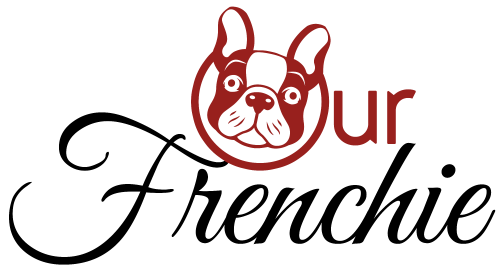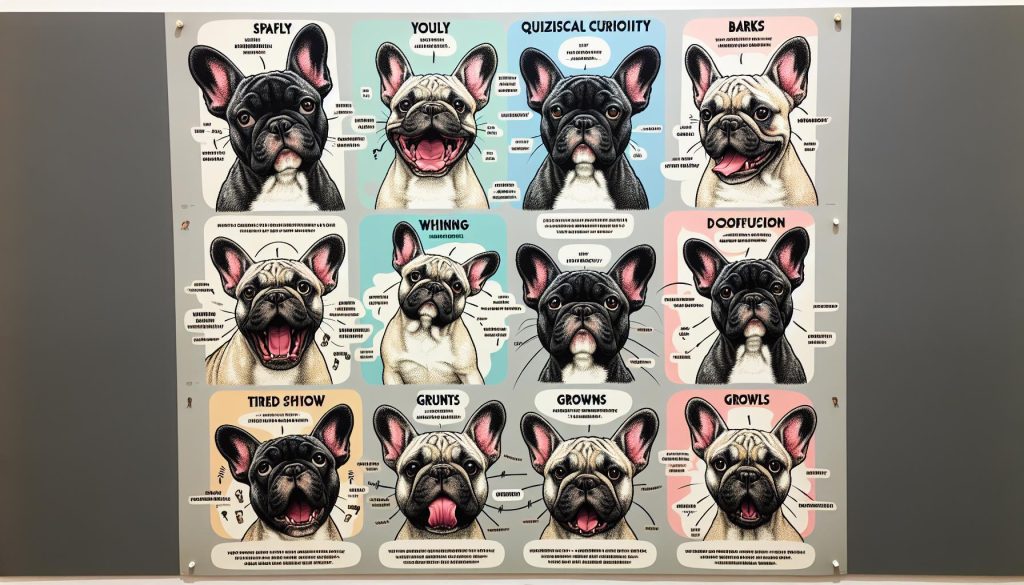About
What Different French Bulldog Sounds Mean
Page Contents
french Bulldogs are known for their charming personalities and unique vocalizations, which can sometimes leave their owners puzzled. From snorts and snuffles to whines and barks, each sound they make carries a specific meaning, reflecting their mood, needs, or health. Understanding these sounds is crucial for fostering a strong bond with your Frenchie and ensuring their well-being. In this article, we will explore the various sounds French Bulldogs make and decode what each one signifies, helping you become more attuned to your furry friend’s interaction style.
Understanding French Bulldog vocalizations
French Bulldogs are known for their charming personalities and distinctive vocalizations that can sometimes puzzle their owners. Understanding these sounds can strengthen the bond between you and your furry friend.Here are some common vocalizations and what they might mean:
- Snorting and Snuffling: These sounds are typical for French Bulldogs due to their brachycephalic (short-nosed) anatomy. While often harmless, excessive snorting can indicate excitement or mild respiratory issues. If it becomes frequent or severe, consult a veterinarian.
- Whining: This sound usually signals that your Frenchie is seeking attention, feeling anxious, or experiencing discomfort. Pay attention to the context and body language; if accompanied by pacing or restlessness, it might indicate stress or a need for a bathroom break.
- Growling: Growling can be playful or a warning sign.During play, a low growl is typically harmless.Though, if your dog is growling with stiff body language or bared teeth, it might be a sign of fear or aggression. in such cases, it’s crucial to address the underlying cause.
- Barking: French Bulldogs are not known for excessive barking, but they will bark to alert you to something unusual. If barking becomes frequent, it might potentially be due to boredom or lack of stimulation. Ensure your Frenchie has enough physical and mental activities to keep them engaged.
By paying close attention to these vocal cues and their accompanying behaviors, you can better understand your French Bulldog’s needs and emotions, ensuring a happy and harmonious relationship.
Decoding the French bulldog Bark
French Bulldogs, with their distinctive personalities and quirky charm, communicate a lot through their barks. Understanding these vocalizations can definitely help you better meet their needs and ensure their well-being. Here’s how to decode the various barks of a French Bulldog:
- Alert Bark: This is a sharp, rapid bark that often occurs when your Frenchie senses something unusual or unfamiliar. It’s their way of alerting you to potential intruders or changes in their habitat. Pay attention to the context, as this bark is usually accompanied by a heightened state of awareness.
- Playful Bark: characterized by a higher pitch and a more rhythmic pattern, this bark is often accompanied by a wagging tail and playful body language. It’s an invitation to engage in fun activities, signaling that your Frenchie is in a good mood and ready to play.
- Demand bark: When your French Bulldog wants something specific, such as food, attention, or a toy, they may use a persistent, medium-pitched bark. This bark is often accompanied by direct eye contact and a focused stance. Responding appropriately can help reinforce positive communication.
By paying close attention to the nuances of your French Bulldog’s barks, you can foster a deeper understanding and strengthen the bond with your furry companion. Recognizing these vocal cues not only enhances communication but also contributes to a more harmonious relationship.
What French Bulldog Whines Indicate
Whining in French Bulldogs can be a multifaceted vocalization, often acting as a window into their emotional and physical state. Understanding these sounds is crucial for pet owners who want to ensure their furry friend is happy and healthy. Here are some common reasons your French Bulldog might be whining:
- Attention-Seeking: If your Frenchie is whining while looking directly at you,they may simply be craving your attention. This could be their way of saying they want to play, need a cuddle, or are ready for a walk.
- Discomfort or Pain: Persistent whining without an obvious cause could be a sign of discomfort or pain. It’s critically important to observe for any other symptoms, such as limping or changes in appetite, and consult a veterinarian if you suspect health issues.
- Stress or Anxiety: Whining can also indicate stress or anxiety, especially if it happens in new environments or around unfamiliar people.identifying the source of stress and addressing it can help alleviate their unease.
- hunger or Thirst: A whine might be a gentle reminder that it’s mealtime or that their water bowl is empty. Keep an eye on their feeding schedule to ensure they’re not going without.
Recognizing these cues can help you respond appropriately to your French Bulldog’s needs, fostering a deeper bond and ensuring their well-being. always pay attention to the context in which the whining occurs, as this will provide the best clues to what they are trying to communicate.
French bulldog Snorts and Their Meanings
French Bulldogs are known for their distinctive snorts, which can convey a variety of emotions and needs. Understanding these sounds can definitely help you better connect with your furry friend.Here are some common snorts and their meanings:
- Contentment Snorts: These are soft and rhythmic,frequently enough heard when your Frenchie is relaxed or being pampered. they might snort gently while snuggling in their favorite spot or during a belly rub, indicating pure bliss.
- Excitement Snorts: When your French Bulldog is thrilled, such as when you return home or they see their favorite toy, their snorts may become rapid and more pronounced. This is their way of expressing joy and eagerness.
- Attention-Seeking Snorts: If the snorts are persistent and directed towards you, your Frenchie might be trying to get your attention. Whether they need a walk, food, or just some cuddles, these snorts are their polite way of asking.
- allergy or Respiratory Snorts: Sometimes, snorting can indicate discomfort, especially if it’s accompanied by sneezing or wheezing. This might be a sign of allergies or a mild respiratory issue, and it’s wise to monitor if these sounds persist.
by tuning into these snorts,you can gain insight into your French Bulldog’s mood and needs,enhancing your bond and ensuring their well-being. Always pay attention to the context and any accompanying behaviors to decode these charming sounds accurately.
Interpreting French Bulldog Growls
French Bulldogs, with their distinct personalities, often communicate a variety of emotions through growls. Understanding these vocalizations can definitely help you better respond to your pet’s needs. while a growl might initially seem aggressive, it can actually convey a range of feelings.
Playful growls: Often accompanied by a wagging tail and a playful stance, these growls indicate that your Frenchie is ready to engage in fun activities. This type of growl is usually higher in pitch and shorter in duration. Look for other playful cues like a “play bow” where the front legs are lowered, and the rear is raised.
Warning Growls: These are typically deeper and more prolonged.A warning growl might be your French Bulldog’s way of expressing discomfort or unease. It’s crucial to pay attention to the context and accompanying body language, such as raised hackles or a stiff posture. If you notice these signs, it’s best to assess the situation and remove any potential stressors.
- Fearful Growls: These can occur when your Frenchie feels threatened or scared. Accompanied by cowering or retreating, it’s critically important to approach calmly and reassure your pet.
- Attention-Seeking Growls: Sometimes,a French Bulldog might growl softly to get your attention,especially if they want to play or need something. This growl is often accompanied by a curious or expectant look.
By learning to interpret the nuances of your French Bulldog’s growls, you can foster a stronger bond and ensure their well-being. Always consider the context and other behavioral cues to accurately understand what your furry friend is trying to communicate.
When French Bulldogs Squeal: A Guide
French Bulldogs are known for their expressive vocalizations, and one of the most intriguing sounds they make is a squeal. Understanding what these squeals mean can enhance your bond with your furry friend and help you respond appropriately to their needs.
**Excitement or Anticipation:** One of the most common reasons a French Bulldog might squeal is sheer excitement. This high-pitched sound often occurs when they anticipate something enjoyable,like going for a walk or receiving a treat. You might notice their tail wagging and their body wiggling with enthusiasm. In these cases, the squeal is a positive expression of joy.
**Discomfort or Distress:** Conversely, a squeal can also indicate discomfort or distress. if your Frenchie squeals while being picked up or during play, it might be a sign of pain or anxiety. It’s important to observe their body language and context to determine if the squeal is a call for help. Look for additional signs such as cowering, avoiding eye contact, or a tucked tail.
- Excitement: High-pitched, accompanied by wagging tail and energetic behaviour.
- Discomfort: Sharp, sudden, often with signs of anxiety or pain.
French Bulldog Howls: Causes and Solutions
When a French Bulldog starts to howl, it can be both endearing and puzzling. While howling is not as common in Frenchies as it is in some other breeds, it can still happen for a variety of reasons. Understanding these causes can definitely help you address the behavior effectively.
Causes of Howling:
- Attention Seeking: Your frenchie might howl to get your attention, especially if they feel neglected or want to play.
- Anxiety or Stress: Howling can be a sign of separation anxiety. If your dog howls when you leave the house, they might be expressing distress.
- Environmental Triggers: Sometimes, external sounds like sirens or music can trigger a howling response in French bulldogs.
Solutions:
- Provide Engagement: Ensure that your Frenchie gets enough mental and physical stimulation. Interactive toys and regular exercise can help reduce attention-seeking howls.
- Address Anxiety: If separation anxiety is the issue, consider behavior training or consult a professional. Gradual desensitization to your departures can also be effective.
- Minimize Triggers: Identify and reduce exposure to sounds that trigger howling. You can also use white noise machines to mask external noises.
In Conclusion
understanding the diverse sounds of your French Bulldog can substantially enhance your bond and ensure their well-being. From playful grunts to anxious whines, each vocalization is a window into their emotions and needs. By tuning into these unique sounds, you can respond more effectively, fostering a happier and healthier environment for your furry friend. Remember,every French Bulldog is unique,so take the time to learn the specific nuances of your pet’s language. This attentiveness will not only improve your communication but also enrich your relationship with your beloved companion.

